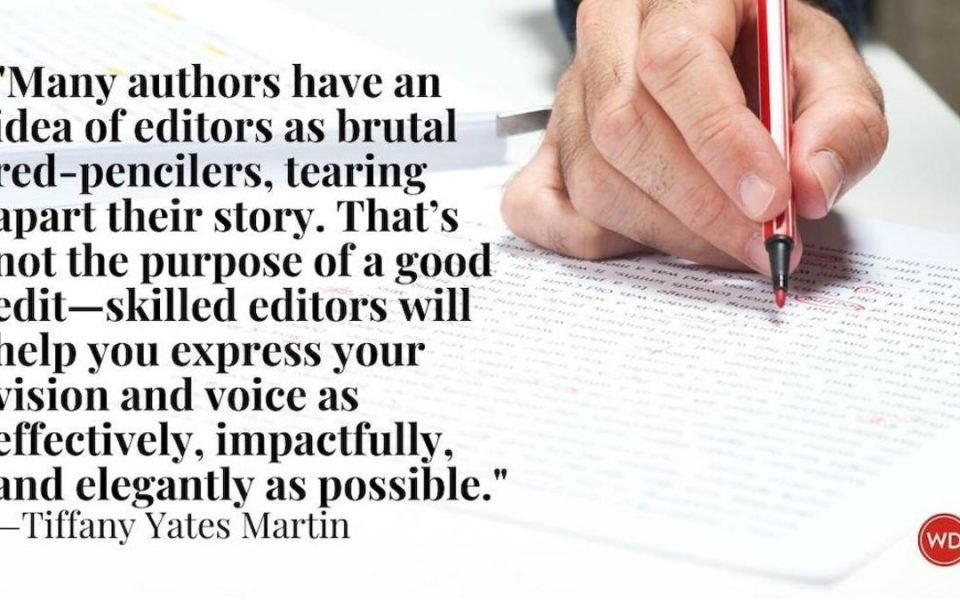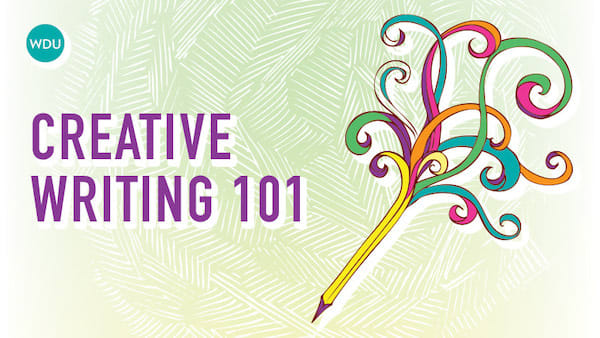Evaluating the Sample Edit and Choosing the Right Editor for You
In this series about hiring a professional editor, we’ve examined whether you need an edit as well as what kind, looked at how to find good editors, and determined what questions to ask to narrow down your choices.
(When Is My Novel Ready to Read: 7 Self-Editing Processes for Writers)
At this point in your vetting process, one of the non-negotiables I always suggest is asking any editor you’re considering for a sample edit—you wouldn’t buy a car without a test drive, and editing is a major and important investment. But how do you evaluate that sample once you receive it?
Here are a few key areas to consider in determining whether an editor is a good “fit” for you and your work.
Do the edits resonate?
This is a bit of a “squishy” area, but it’s the most critical question to ask yourself in deciding on an editor: How do his edits and feedback feel to you?
- Does she “get” your voice and your story? Does the feedback give you a resounding feeling of recognition, of the editor having put her thumb on parts of your story you suspected weren’t quite working as well as they could, of a big internal “yes” to her comments?
- Do you like his editing style and personality? Editing is a strangely intimate relationship; you’re inviting someone to critique not just your work, but corners of your psyche even you may not be aware you reveal in your writing. Does the editor’s approach suit you, whether you prefer straightforward and thorough or a lighter touch; formal or informal; all business or a more personal approach?
- Does the feedback make you excited to dive in and start tackling revisions? The right editor will spark your passion for your project, even if you know it may be a lot of work, not leave you feeling deflated or discouraged.
If the answer to all these subjective questions is yes, then it’s time to consider the specifics of the editor’s work in the sample.
Do the edits reflect your vision?
As far as the work itself is concerned, the most important consideration is whether the editor seems to understand your intentions in the scene/story and their feedback is designed to help you achieve it.
Many authors have an idea of editors as brutal red-pencilers, tearing apart their story. That’s not the purpose of a good edit—skilled editors will help you express your vision and voice as effectively, impactfully, and elegantly as possible.
Are the editor’s edits based in trying to help you convey and clarify your intentions on the page—or does the feedback feel as if it’s pushing you in a certain direction? Publishing is subjective; no one’s suggestions are the “right” ones; a good editor works to help you achieve your vision, not his.
But that doesn’t mean his edits shouldn’t offer constructive suggestions for how to do it.
Does the editor offer solutions or just point out problems?
One reason editing can get a bad rap is that some editors seem to orient toward finding what’s “wrong” with your story … without offering practical, actionable suggestions for addressing what may not be working as well as it could.
Consider the usefulness of a comment like, “This isn’t working” as opposed to: “Her inaction here may strain reader credibility; perhaps she does try to call for help but for some reason she can’t reach anyone, or they don’t respond?”
Good editors don’t shortcut their feedback but take the time to be thorough. Like a home inspection, a careful edit shines the light where you may not know to look, points out possible areas of concern, and offers ways to strengthen your manuscript—not with prescriptive feedback or specific instructions, but by suggesting directions the author might look in for solutions, and supporting observations with their reasoning.
Truly skilled editors may also take time to point out areas that are working especially well, where they felt most engaged or affected, or particularly impactful elements. Positive feedback isn’t just encouraging to an author; it also gives you a baseline of the strongest and most effective parts of your manuscript.
What is the editor’s feedback approach and tone?
Good editors can give truthful, realistic, even pointed feedback without denigrating or dismissing the author.
Is the feedback you receive positive and constructive? Negative, harsh comments are counterproductive to a writer; creativity responds only to the carrot, never the stick. Pointing out what’s “wrong” is different from reflecting how a certain element of your manuscript may or may not serve the story.
That doesn’t mean an editor should offer an author empty praise or blow smoke—simply that her approach should maintain a tactful, respectful tone, and offer practical, actionable, useful feedback for the author to improve the effectiveness of her story.
There’s a vast difference in how an author responds to, “This is ridiculous” rather than, “This may strain reader credibility.” A good edit should never feel highhanded or condescending, denigrating or belittling.
Editors don’t exist without authors. If an editor or their feedback makes you feel dismissed or disrespected, or as if there is some power dynamic in play, their work is unlikely to best serve you or your story.
Not all editors offer sample edits. While I strongly suggest considering only those who do, there are other options for seeing how an editor works: Some share pages from past edits, either directly with authors or posted on their websites sample; some will offer you a personalized sample for a fee. The latter may be negotiated with the editor as far as length of submission for the sample, rate, and whether the cost is factored into the overall cost of the edit (the sample should also be returned with a firm quote for the full project).
But no matter how experienced or accomplished an editor may be, the only way to know whether she is the right fit for you and your manuscript is to see an example of her work. You’re well within your rights to request a sample edit, and smart authors do before committing their creative product and money to an editor; your work and your writing career are too important not to.
The final installment in this series next month looks at alternatives to a professional edit—not every author can or necessarily needs to hire a pro on every manuscript.



